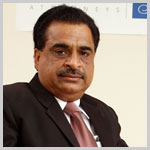Period of limitation under GST law
R K Hasija, Advocate, GSTaxperts
GST law has been implemented replacing various tax statues, levying taxes and duties under Centre and states laws. The purpose of legislatingGST law has been to do away that multiple tax laws and introduce a single tax on the concept of one nation one tax. It has been the endeavour of the Government to bring in simplified and rational tax law for better or compliance, transparency and simplification. Even the Prime Minister in his speech has termed it as Good and Simple Tax.
However, while legislating, the revenue has tried to introduce certain provisions with regard to the limitation of tax demands which are unprecedented. Under the Central Excise law, under normal period of limitation, demands were issued within 2 years from the relevant date and in case of fraud, misstatement, suppression of facts with intend to evade duty, period of limitation was extended up to 5 years from the relevant date. Earlier thenormal period was 6 months under the Central Excise Act, 1944. This period of 6 months was later substituted by one year on w.e.f. 12.5.2000. This one year period was further substituted to 2 years w.e.f.14.05.2016. Similarly, under the service tax law, when the law was introduced, the normal period was one year which was later substituted to 18 months w.e.f. 28.05.2012 and which again wasagain substituted to 30 months by way of Finance Act, 2016. With regard to VAT laws of different states, different period of limitations were prescribed.
Consistently, revenue has been increasing the normal period of limitation without any rhyme and reason. With the advancement of technology and means of communication, on the contrary, period of limitation should have reduced. Extension of normal period of limitation is nothing but a premium on the lethargy of the officers and nothing to do with the detailed investigation or otherwise. In one of the conferences, I had an occasion to ask this question to a very senior officer of the department as to why the period is being increased from time to time. Prompt came the reply that the department officers want to be very thorough before issuance the demand Show Cause Notice and in this process more time is required. When a supplementary question was asked why the time limit for filing of refund claim by the assesseesis not increasedcorrespondingly, there was no answer.
It is a tendency with the officers to raise demand at the eleventh hour in order to save it from time barred. Thiseleventh hour has been extended from time to time to the peril of the assessee. While the assessee who has given all the particulars/ documents and details without hiding anything from the department, he used to sleep peacefully after period of 6 months/one year/two years as the case may be that no demand would be raised. The peace of the assessee has been disturbed by way of increase in the normal period of limitation from time to time.
Under the GST law the normal period of limitation has now been further increased to three years which again gives a more room for lethargy on the part of the officers.
We are talking about inviting foreign investment by making slogans like ‘make in India’, ‘Skill India’ etc. The GST legislation increasing the normal time period of limitation is contrary to the concept and envisaged by the Government of India. It would be a deterrent to foreign investors to keep off for is whether any demand can be visited on them up to period of 3 years under normal circumstances. The wait for the period of peace has been extended without any justification when the returns under GST law are to be filed online and every piece of information is available to the department by click of the button. Despite this, the period of limitation has been extended without any logical reason. Under the extended period, however, the period remains five years.
While there is a welcome provision thereby the period of limitation of three years or five years has been made with regard to the issues of orders and not theissue of show cause notice. In other words, if the order is not issued on three years or five years as the case may be, the proceedings would be deemed to have been concluded. While this provision appears to be rosy but it is not without thorns. It has been further provided that where revenue is in appeal before any appellate forum in some other case, the time spent in such appeal shall be excluded from the period of three years or five years as the case may be. This would give more time to the department to issue orders beyond any time. The litigation in India is known to be very slow and the matters are pending at various levels which get over in some cases after the period of 10 to 15 years. It is also a known fact that revenue department is a big litigator. Left and right appeals are being filed before the next appellate firm against the orders which are in favour of the assessee. This is due to the reason the officers who are at the helm of affairs reviewing the orders do not take responsibilityforacceptingthe order and they tend to file appeal to avoid any controversy or with a mind that nobody can attribute any motive or for the fear of vigilance. In these circumstances, most of the appeals filed by the department get dismissed and the assessee has to face litigation till the matter is settled at the various appellate firms. That beingso, if one order has been passed in favour of the assessee, the department may file appeal against it to the next appellate firm.In a similar case relating to another assessee, the period spent by the department in that case, will get excluded from the time of three years or five years under GST law. The question arises how the poor assessee would know after expiry of three years or five years that department has gone into appeal against some other order on the same issue. New law does not propose any mechanismfor the assessee to know the position whether his case has been settled or even though demand can be visited on him with huge liability of interest after 10-15 years. Therefore, this piece of legislation being excessive legislationmay be a material for challenge before the appropriate forum for its constitutional validity.





Leave A Comment